On this trip, I are in my wife’s home town, Prochlodney. It is in southern Ru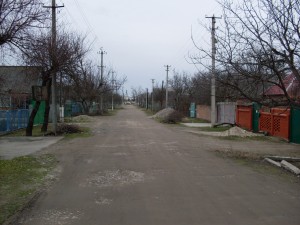 ssia, about 75 miles from the Chechnya border. She had described her home as being in a “village” so I was surprised to find a small city of perhaps 100,000 inhabitants. However, each of the suburbs is a lot like a small old village, and we are actually in a small village called Premalka which means “by the river Malka”
ssia, about 75 miles from the Chechnya border. She had described her home as being in a “village” so I was surprised to find a small city of perhaps 100,000 inhabitants. However, each of the suburbs is a lot like a small old village, and we are actually in a small village called Premalka which means “by the river Malka”
Easy test #1.
Given the following facts.
- The light switches on Russian bathrooms and toilets are on the outside of the room.
- Most Russian bathroom doors do not have handles. They have a sliding lock of each side of the door.
- The lock on the outside keeps the door closed normally. When you are inside, a different slider keeps it closed while you are using it.
What, therefore, it the favorite game to play when your little sister or brother is sitting on the toilet? Anyone miss this one?
Things have changed a lot in the time I was gone. The most noticeable change is in the stores. In old Russia, everyone in retail business was a full time, professional, practiced jackass. This was because of the way retail business ran. There was lots of worthless money around, but nothing to buy with it. If your store had any product, people would line up and beg for it. On the other hand, as a clerk, you could not be fired, and could not get a raise. Outside of the store, your life was a miserable drunken tapestry of standing in line in other stores to get stuff from other surly clerks. So the only fun you had, the only self satisfaction you had, was to be a surly jackass to everyone who came it. It was petty, but it was the best thing you had going.
Half of the stores and businesses still run that way. At a kiosk near our apartment, I yelled through the tiny window for chips and pointed at the plain Lays chips in the window. The clerk threw a bag of barbecue chips though the window and banged on the counter for her money. She was very angry when I would not take the chips that I hated and said sarcastic things that I am rather glad to be unable to translate.
On the other hand, a wise and now prosperous Chechnyan has made a deal with the city to put convenience stores at several of the bus stops. He builds a nice brick awning for the passengers to wait under, and a small brick store at each busy stop. The stores are like tiny, tiny 7-11s. You walk inside instead of yelling through a window and the clerk behind the counter does her smiling best to get you what you want. When the clerk at the local store found out that there was an American coke drinker living nearby, she even ordered extra diet coke for the shelves.
The place is busy. The nearby kiosk is not. (later note: the kiosk closed before I left Prochlodney a month later and the nasty clerk probably still can’t figure out why she lost her job.)
However, my letters have gotten longer in part because there is NOTHING ELSE TO DO in Prochlodney. I am in the middle of damned near nowhere. I now understand why my mother in law goes to the bazaar every day. I thought it was just because Russians have always done that. With little or no refrigeration in the old days and small spaces to store stuff in, women here have always shopped often. Now I think it is because the bazaar is the major entertainment in town. I have started to find excuses to go haggle about the price of apples!
Anyway, feel free to put off reading this letter until you have a lot of free time – or just delete it. I have had too much time to write letters.
I have been working hard at understanding the one major question that fascinated me before I got here. In the former Soviet block, the average income per person is only $200 per month. Here in the outlands, the average is about half of that. The question is “How do they do that?” How do you live with two children and less than $400 per month – a lot less if you are a doctor.
In my mind, this is compounded by the “Victor” problem. My new uncle Victor is one of that last (I hope) living and breathing communists. He misses Stalin and loudly claims “Stalin would know how to handle the damned Chechens! We never had problems when he was alive!” He is intelligent, competent, capable, and likable. However, Victor has two hobbies – drinking and not working. Fortunately, he is often able to combine his two hobbies into a single activity. He brags to me that he gets 50 days of vacation every year and that, as a rentgonologist (x-ray reader), his bosses can’t make him work more than 5 hours a day. This leaves considerable time for his hobbies. His ability to get by without working is his proudest accomplishment, and he still longs for “good old Stalin. He knew how to get things done!”
Turns out that Victor is not typical here – and people do get by.
Part of it is that some expenses are simply lower here. Local phone service is free, utilities are a fifth of the cost in the states, and medical insurance (but not drugs) is free to everyone. Some of the major things that Americans sweat over simply are not a problem.
When you hire a service like a taxi or a plumber, he makes the same lousy money that you do. I just hired a man to install a new water heater in this apartment. The installation will cost me 100 rubles – $3.15 – for a job that took almost two hours.
However, clothes, food and imported anything costs the same here as in the US, and even if your house, utilities and medical insurance were free, you would have a hard time making it on less than $400 a month.
Add in to the equation that the percentage of home ownership here in Prochlodney is at least as high as in Orange County – and if you only count those that actually own their own home as apposed to those who are purchasing with a mortgage, the percentage is astronomically higher. Remember that there are no mortgages. “Own” in Russia really means “Own”.
Turns out that in this part of rural Russia, people here have a tradition of getting by that has done them well for a long time.
First, home ownership. If you lived in an apartment or a home on a collective in 1992, you hit the home ownership lottery. The state deeded the apartments to the current residents and the homes on the collectives went to the members of the collective. They were usually lousy homes and apartments, but they were yours free and clear.
In this area, many people already owned homes. Larisa’s parents built their first home when she was a little girl. In the Soviet Union, laws on property ownership varied from place to place. In this republic, you can’t own farm land, but you have always been able to own, buy, and sell the ground your home stands on or the apartment you live in.
The land itself was usually free. The local collective built houses on the edge of the farm toward the town. The land in the town was owned by the city. By some process no westerner will ever understand, you could (and still can) get the city to give you a building lot for free. The building lots in private hands are also damned cheap because you have to buy all land with cash and those free lots keep prices down.
People like Larisa’s parents and Era and Uri (her sister and brother in law), then build their own homes – cheap. The foundations are clay and concrete block – produced locally. Concrete blocks and oversized bricks are made with local materials by workers who get the usual lousy $200 month pay and cost about one cent apiece. Walls are built of brick or block and the ceiling is clay, cement, and lattice work. The blocks are denser and better looking than American concrete blocks. They have more of the look of bricks. The walls, as in all of Russia are thick masonry.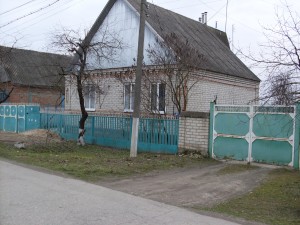
To make a ceiling, you put up a latticework of cheap, poorly trimmed stringers, supported by boards propped up on the floor below. You then lay clay on top of them; add a layer of concrete, and then more clay. No expensive fiberglass insulation – just cheap and solid clay and concrete.
The 18’ thick outside walls and the underside of the ceiling are finished with a layer of troweled concrete (or plaster if you can afford it) and wallpaper. No sheathing, insulation, plastic vapor barrier, or wallboard, just 18 inches of solid brick. Come the nuclear winter, or even the Russian winter, these walls will still be here.
Inside, the walls are one block or brick width of masonry.
Warm, safe, strong, and the only thing besides cockroaches likely to survive a nuclear war.
The roofs are fascinating. The older buildings in Prochlodney have red tile roofs just like southern California homes. They call the tiles “cherry pits” around here. However, the newer buildings have roofs that look like a dark grey version of that wavy plastic sheeting that we use for patio roofs. Uri showed me that they are actually a lightweight concrete and fiberglass cloth stuff. It comes in large sheets and one man can nail up a complete roof in an afternoon. They also skip the sheathing, insulation, vapor barrier and most of the framing on the roof and still get an almost immortal roof.
As you don’t have trucks with ready mix concrete available, walkways and patio areas are usually tiled in an Ottoman style – except that the fancy tiles are actually cheap concrete. Fancier home owners paint them in a pattern
Fences, gates, and the common gingerbread decorations are stainless steel. Goes up a lot faster than our wooden fences and costs a hell of a lot less. Russia owns most of the world’s nickel and stainless steel is cheaper than wood. Then they paint the fence, trim and gates a tasteful BRIGHT GREEN or BRIGHT BLUE. They don’t sell pastel paint here.
The point is, that there are a lot of cheaper ways to get the same functionality that we have without the expense. These are not American homes. Closets are nonexistent, the kitchens are generally so small they belong in a travel trailer, and this type of construction leaves you with exposed pipes running across your kitchen and bathroom walls. However, these are comfortable, warm, and attractive homes done for 10% of the American cost.
I realized how common this building is when I saw the neighborhood cement truck. It wasn’t one of those mobile mixers that we see in the states. It was a truck full of sacks of cement. The city provides aggregate and sand free to home builders, but you have to purchase the cement and mix it yourself. The trucks drive through the neighborhoods beeping their horns like the ice cream trucks of old. If you need cement that day, you wave them down and they unload what you need. What looks like a local self service car wash down the street is actually a steel shed full of concrete sacks handy for you.
Lots of things are just done smarter. You would have a hard time convincing anyone in this town that you needed a $40,000 SUV to get to the store in when there are new Ladas for less than $4000 and Volgas for less than $5000 – and Honda scooters if you can’t afford the Lada.
Food costs about the same as the states, but they eat differently. You can now purchase just about any convenience food in the supermarket. You can get frozen pizza, frozen pie, frozen vegetables and frozen strudel. Most Russians don’t get them. They cook. Like grandma did.
Meals run mostly to fish, potatoes, local vegetables, bread, and flour products. Meat is served at most meals, but not in the quantity or quality Americans are used too. Pancakes, Pushki (thick, greasy, delicious pancakes), Perogi (fried bread with meat or potatoes inside), Pelmini (a sort of boiled ravioli without tomato sauce), blintzes (mostly fried bread with meat or cheese and salt or sugar inside), potatoes, cabbage and bread-like products are the most common components of a meal. Add local vegetables, sour cream, greens that I refuse to describe, and beer and you have a meal.
It is a diabetic’s tasty nightmare. I have to get out of here before my mother in law commits murder by cooking.
Restaurants, though cheap, are a used rarely and the only convenience food that I have seen commonly in homes is frozen pelmini.
The usual decorative plant in the front yard in this area is a potato. Beans, corn, “greens”, and fruit trees also make attractive lawns. If you have a green yard, it is edible greens. One fellow here actually has grass in his front yard but no one can figure out why. I think that the neighbors are all waiting for the cow to show up. Some people here DO have cows and chickens in the back yard. One of my neighbors has a cow in a yard with too little grass to feed it, so the children walk the cow every afternoon, so that it can graze on roadside grass.
Of course, the urban apartment dweller can’t build his own apartment. However, he benefits from that lack of mortgages. In the U.S., the cost of a home is whatever you can barely afford to make payments on for the next 30 years. If interest rates go down, home prices go into the stratosphere. Here the price is limited to what a prosperous and prudent man can have under the mattress.
We just had dinner in one of the best apartments that I have seen in Russia. It was in beautiful condition. It had hardwood floors, decorative plaster ceilings, a modern western style kitchen, and a $10,000 price tag. Lesser apartments sell for $3000 or less. If you can’t buy, rents start at less than $50 a month.
During the bleak fall of 1992, when Russia was out of money and Moscow was out of food, the American press printed the Great Potato Story. They reported that the Russian government had announced that there were millions of potatoes in the fields without anyone to pick them. Since the city was facing a food shortage, the government would provide trains to take people out to the fields. Anyone could go, dig potatoes, keep all that they dug, and live on them through the winter. Most of the trains never left. No one showed up.
I can’t vouch for the truth of the story, but it certainly fits the attitudes of a lot of Russians that I met up north. One if my major worries about Russia has been the laziness and lack of initiative that Communism left behind.
Not here. These people would have dug all of the potatoes and then picked the weeds on the side of the fields to use in salads.
The rest of society also gets along. The lack of money shows, but not the way it did in postcolonial Africa. I have not been there, but all of the reports were that once the colonials left things just stopped working. The power plants broke down. The buses quit working, the river boats rusted. Not here. You see the results of lack of money here, but there are few disasters and overall, most things work as well as they can with the money they have.
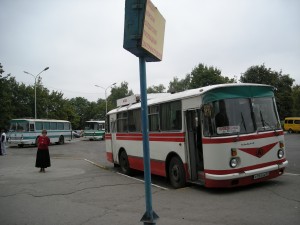
40 years old and running well EVERY day.
For instance, the city has a lot of new Russian made 14 person minibuses. However, they also have virtually every bus every purchased in the last 50 years. The bus that we traveled to Nalchick on was the same bus Larisa used to go to college. The windshields are often cracked, the upholstery is gone, and the paint is chipped on all of these busses. However, I have not been on one that didn’t start well and run smooth, and they don’t seem to break down any more often than American buses. In fact, it must be comforting to know that you can take a bus to the train station, go away for 20 years, and then take the same bus from the train station that you took too it 20 years earlier.
The streets are a major safety feature of the city. Driving is done by men who consider it a competitive sport. Given a chance, they will do 120 kilometers and hour on a two lane street with a one bus in front of them and one coming in the approaching lane – and pass. Thank God, there is not enough money to keep the streets in repair. The constant two foot wide pot holes serve as cheap speed bumps and save many innocent lives.
However, they do work at that street repair. They use wooden wagons behind farm tractors along with the few small bobcats that they have been able to afford. I see road crews working every day and working at least as fast as a California highway worker.
Of course, stretching and doing only go so far. Remember what I said about this area having no water pressure. They need a new water tower.
I was explaining in my best patient pompous American way how to get some action from city hall. I pointed out that 20% of the cities residents lived in Premalka (this area of town – literally “area by the river Malka”). I suggested to Uri and Victor that they get the citizens together to petition the mayor for some money. Uri said “won’t work.” I said, “You have democracy now. Threaten the mayor with losing his job and maybe he will find the money.” Victor said patiently, “won’t work”. Uri sighed and pointed to a house down the street. “That’s the mayor’s house. He doesn’t have water either.”
Russians, even the hardy ones down here, are a discouraged bunch. Depression is the national sport, and they have been practicing it since the time of the czars. They are certain that things will never get better in Russia. Everyone keeps saying that it will be 50 years before Russians have microwaves and supermarkets and clothes dryers. However, they are working here and I think that they will surprise themselves.
Until a few years ago houses in Prochlodney were built in a style that was used in America from 1740 to about 1870. People started by building a structure a little smaller than a typical one car garage. The structure held the kitchen and dining room. They then often moved into this tiny structure while they built the rest of the house in a separate building. The living rooms and bedrooms were a separate house with a covered breeze way in between. So when you walk the streets of Southern Russia, you see big house, tiny house, big house, tiny house.
This was done in the early days of America because of the danger of fire from cooking and the lack of fire departments. Larisa says that they did in Russia to keep the smell of cooking out of the house. I think that they did it because they all knew that someday their mother in law would move in.
In the last few years, the custom of two buildings has disappeared.
Aside from small towns, apartment buildings are everywhere. Most people live in them. The best are ones were built before 1960. The others come in dictator flavors. Every ruler had his idea of what the next million apartments should be. In addition to Stalin apartments, there are Khrushchev apartments, Gorbachev apartments and so on. People usually prefer the Stalin apartments because they have very high ceilings. Almost all of the apartments in Prochlodney are Khrushchev apartments. The odd thing is that no matter where you go over a 5000 mile range, all of the apartments built at the same time have the same floor plans. They were built as modules in factories approved by whatever ruler was in place then.
Americans would, however, go crazy over the zoning. Russians have never had enough buildings to be choosy about where you put things and still don’t have any sense about business placement. The police station in Tver was in a residential area in an old converted pre-revolutionary home. The best video store was down an alley. Sometimes you walk into a store front and find computers on the back wall, t-shirts on the left, and perfumes on the right. The best software store was in a converted garage behind an apartment building. Larisa’s dentist had his office in an unused room in the athletic center. The sounds of basketball and people splashing in the pool mixed with the sounds of the dental drill.
The most delightful placement that I saw was the “Sex Shop”. The store front sign was in English and there was another sign above it in Russian that I couldn’t read. I went in only, of course, for the purposes of cultural research – and found myself in a boutique.
A nicely dressed lady was selling upscale perfumes, scarves, jewelry, makeup, and similar items in the store. Seeing my obvious confusion, she gave me her best “Oh, God. Another pervert” stare and nodded to a sign low on the back wall. It was on the staircase to the basement
The sign read “Sex Shop”. Russian men must be a lot braver than American men.
They are starting to catch on. There is an area of Prochlodney called “Santa Barbara” where people are building only big and nice homes. The area where Leo is building his home in is now almost all big new homes. In the meantime, there is a recurrent feeling of non-reality when you look at the buildings and see that there is usually no “neighborhood”.
As an American, however, you would find some of the situations familiar.
In northern Russia, the population is almost totally White Russia with a very few African blacks left over from the cold war days.
Down here, the Russians are in enclaves that are almost totally Russian. They are surrounded by a majority Muslim population. Experienced residents can tell Muslim men from Russian due to their darker hair and eyes color. The traditional Muslim women wear worse clothes than their Russian counterparts and spend more time sweeping up the porch.
The Muslims in this area speak Kabordenian or Balkarian at home and Russian in public. Now that central authority has weakened, some of the schools are teaching in the ethnic languages rather than Russian. Larisa tells me that over 170 separate languages are spoken in the republics that comprise the new Russia. It sounds as frightening and confusing as Los Angeles schools.
There are lots of Asians here. I thought they were the leftovers of the Tartars that Stalin moved around, but it turns out that they are North Korean. They are famous for moving here and becoming onion farmers. It makes you wonder just how poor a country can be when it’s citizens immigrate to rural Russia for a better life.
That last group all over Russia is the Rom. Gypsies. They dress like the gypsies we see in the movies. Uri, my new cousin who works in the prison says that it is important to have the gypsies. After all, he says, who would do their traditional jobs of drug dealing, cheating, fortune telling, and stealing if the gypsies were not there.
By the way, gypsy women are UGLY. They don’t bathe much, their clothes usually need a good washing, and they have bad breath. They are not successful as prostitutes, because no one wants them. Forget any fantasies you may have had about them.





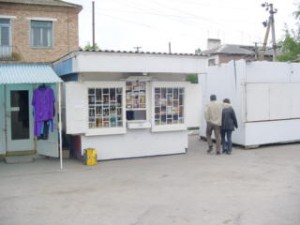

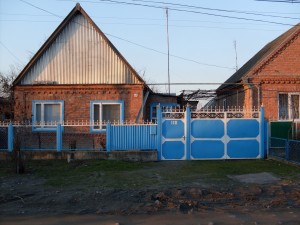

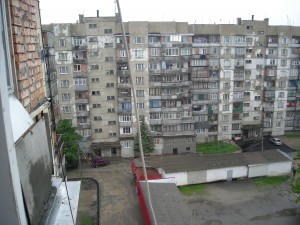
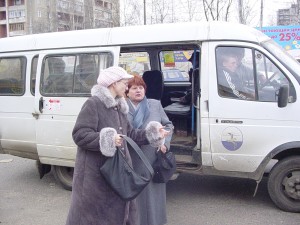
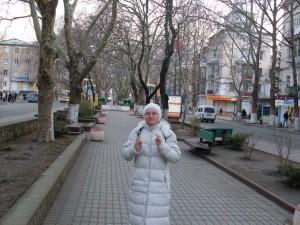
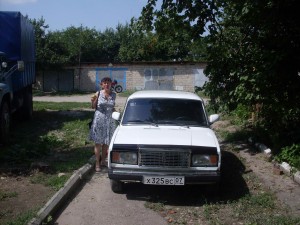
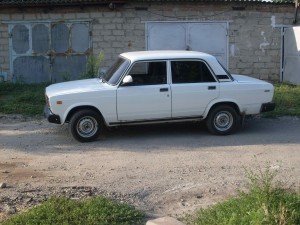
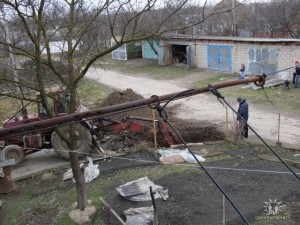
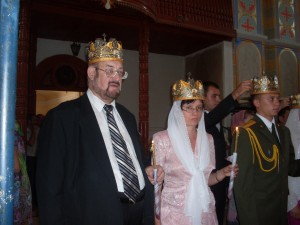
Recent Comments